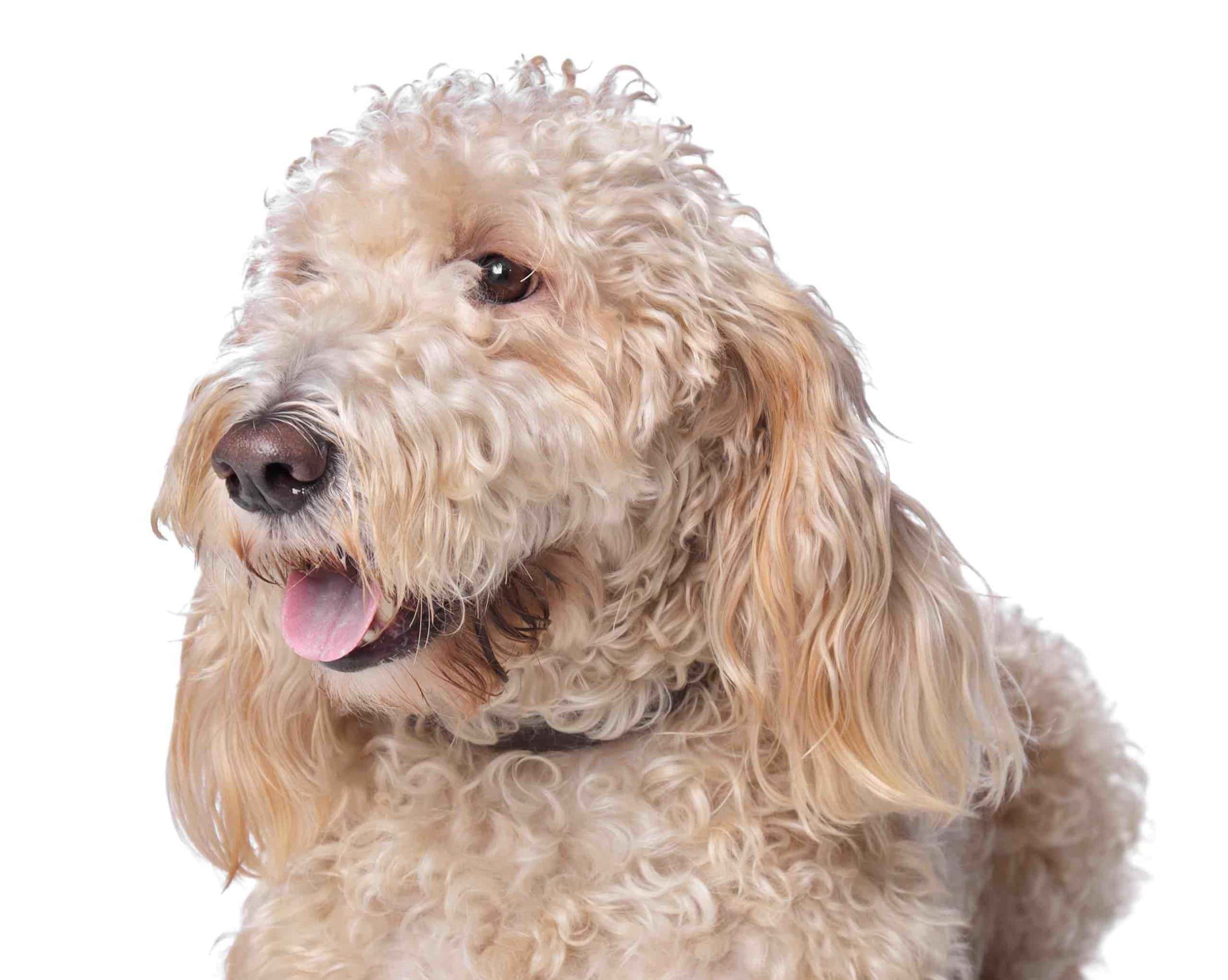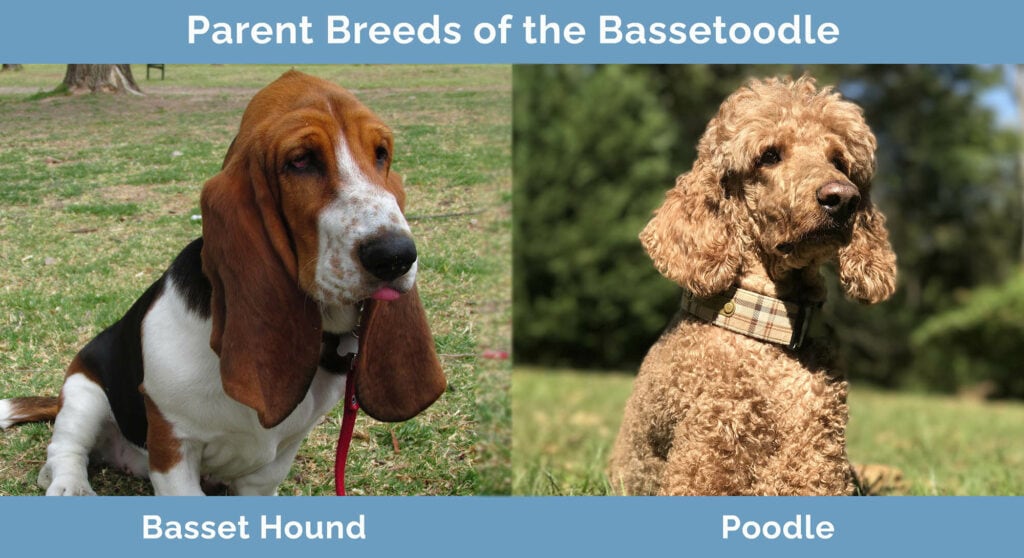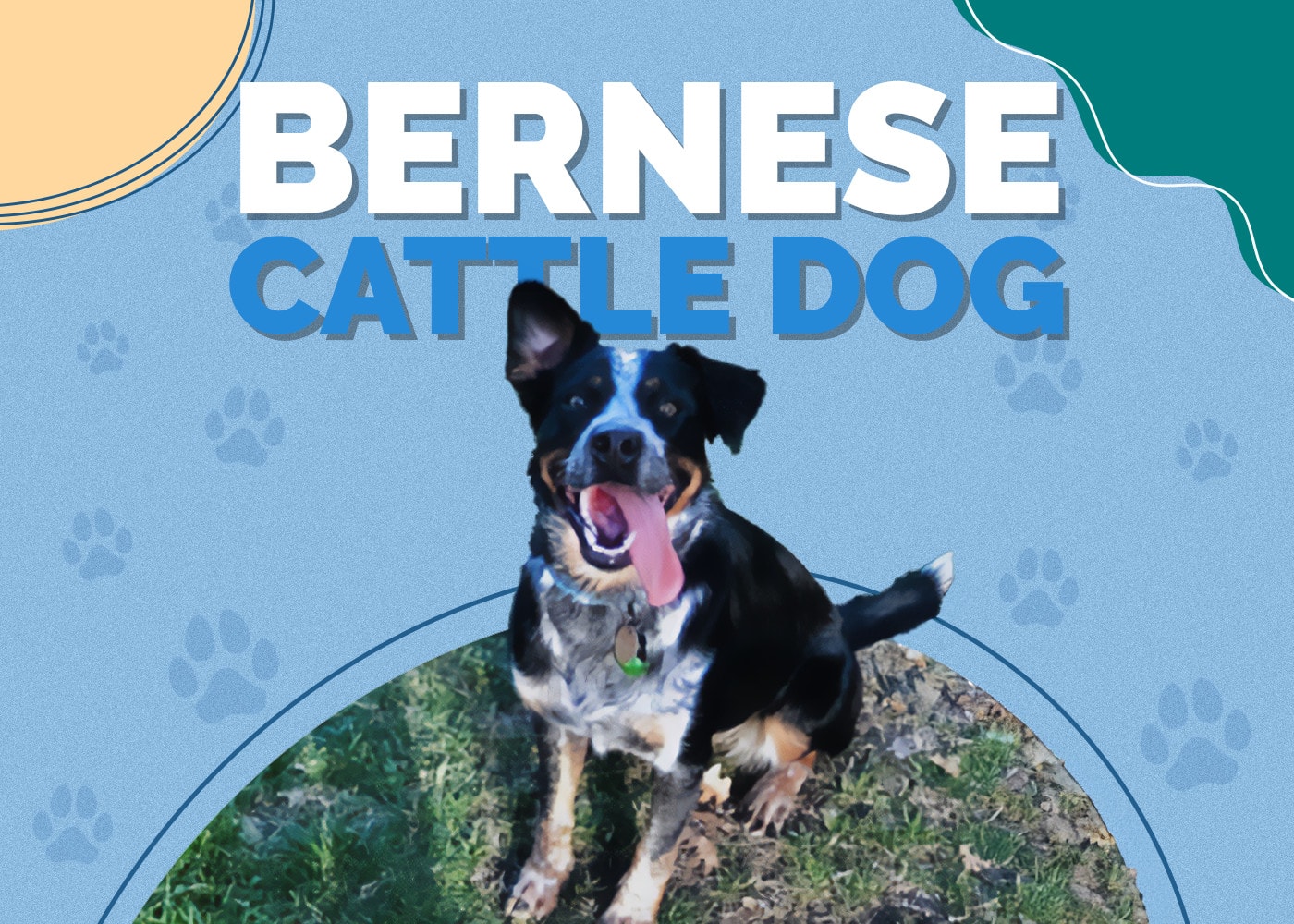Bassetoodle (Basset Hound & Poodle Mix): Info, Pictures, Characteristics & Facts

Updated on

Height:
12-16 inches
Weight:
20-30 pounds
Lifespan:
12-15 years
Colors:
Black, white, tan, red, blue, brown, cream, and more
Suitable for:
Families looking for a small- to medium-sized breed with plenty of personality
Temperament:
Affectionate, intelligent, loyal, and playful with a bit of a stubborn streak
If you’re looking for a mixed breed dog with plenty of personality, then we’d like to introduce you to the Basset Hound Poodle mix, or Bassetoodle. These charismatic pups are a hybrid breed created through crossing a Poodle with a Basset Hound. The result is a charming and affectionate pup that loves spending time with their families.
It’s undeniable that this breed hit the jackpot when it comes to the cute factor. But that shouldn’t be your primary concern when selecting a new puppy. It’s far better to make sure that you can meet a Bassetoodle’s requirements in terms of exercise, training, and care before you rush off to buy a puppy.
The Bassetoodle isn’t that particularly well-known of a breed, so you might not even know that much about their personality and temperament. We’re here to change that. This guide will walk you through all aspects of this breed. From how much exercise and grooming they need to what they’re like to train, you can find everything you need to know right here.
Bassetoodle Puppies
We know that it can be almost impossible to visit a litter of Bassetoodle pups without mentally picking out which one you’d want to take home. But before you make that life-changing decision, it makes sense to do your research.
Bassetoodles can be stubborn, which means that first-time dog owners can find them a bit of a challenge in terms of training. Choosing to work with a professional dog trainer is the best way of finding out the methods that will suit these dogs the best.
If you or your neighbors are sensitive to noise, you should know that these dogs love to howl! While they might not bark as much as some other breeds, they are capable of making quite a racket.
They also love spending time with their humans — so much so, that they can suffer from separation anxiety if left alone for long periods. That’s when that mournful howl may make an appearance!
3 Little-Known Facts About the Bassetoodle
1. Bassetoodles are registered with several breed registries.
Your Bassetoodle puppy can be registered with the Designer Breed Registry (DBR), the Dog Registry of America (DRA), American Canine Hybrid Club (ACHC), the Designer Dogs Kennel Club (DDKC), and the International Designer Canine Registry (IDCR).
The one club that won’t accept them into their registry is the American Kennel Club. That’s because the Bassetoodle isn’t a purebred, but rather, is what’s known as a hybrid or designer dog.
2. The Bassetoodle will follow its nose anywhere.
This hybrid breed has inherited the superior tracking ability of its Basset Hound parent. In terms of scenting capabilities, the Basset Hound is the second most capable breed at sniffing out and following a scent. Their Bassetoodle progeny are also keen trackers as a result!
If you’re out on a walk and your Bassetoodle smells an interesting scent, they may become stubborn and refuse to do anything but follow it! That’s why it’s best to walk these pups on a leash because they can and will head off on their own. While tracking a scent, the Bassetoodle will let out a loud bark. A throwback to their Basset Hound parent, this bark is designed to let handlers locate their dogs.
3. The Bassetoodle combines the best of both parent breeds.
With hybrid breeds, it’s always harder to predict exactly how the pups are going to turn out. Your pup may look more like their Poodle parent but have the character of a Basset Hound or the other way around. The best way to be sure this is the right breed for you is to familiarize yourself with the temperament, personality, and appearance of both parent breeds.
That way, however your hybrid pup turns out, you’ll be well prepared!

Temperament & Intelligence of the Bassetoodle 🧠
Bassetoodles love their families dearly but they’re not overly demonstrative. They will be quietly loyal rather than constantly seeking affection. They do love to please their owners, but they also have an independent and stubborn streak that can mean they’ll sometimes switch off from a training session. This is especially evident when they find an irresistible new scent trail to follow. They will simply switch off from everything else, put their nose to the ground, and track!
With pack dog parents on the Basset Hound side of the family, these dogs want to be around people and other dogs. A Bassetoodle left alone for a long amount of time during the day will soon start to suffer from separation anxiety. This can lead to undesirable behaviors, including howling, barking, and chewing or clawing your furniture.
Bassetoodles are intelligent and excellent problem solvers. As a result, their training sessions need to be challenging and engaging so they don’t lose interest.
Are These Dogs Good for Families? 🏡
The Bassetoodle makes a great family dog. They’re affectionate without being overbearing, so while you’ll be in no doubt of their love for you, they don’t need constant reassurance like some other breeds.
The smaller size and short legs of this breed make them great around kids or elderly family members. While they’re enthusiastic when out on walks, they’re fairly laidback around the house so you won’t need to worry about them knocking people or objects over.
While in the house, the Bassetoodle makes a great watchdog, and they will soon start to howl or bark if they spot any activity that’s different from the norm. Also, you’ll need to make sure your backyard is securely fenced and that all family members know how to walk your new dog on a leash. If a Bassetoodle smells an enticing scent, they can find ways to escape an unsecured yard or simply run off if they’re not on a leash.
Does This Breed Get Along With Other Pets? 🐶 😽
The Bassetoodle’s laidback temperament means they generally get along well with other family pets. They will usually integrate faster if they meet the other pets while they’re still puppies.
As with any introductions between new pets, keep things short and sweet to start, and don’t expect them to get along famously right away. Make sure each animal has a space of their own to retreat to if they feel the need.
Things to Know When Owning a Bassetoodle
Food & Diet Requirements 🦴
Bassetoodles can be prone to overeating, so it’s important to keep a close eye on their rations. If you use treats during training sessions, be sure to account for these when calculating your dog’s meals. Free feeding will just result in them eating everything in their bowl in a short space of time, so it’s a better idea to split their daily food into two, three, or even four smaller meals. Also, fatty table scraps aren’t a good idea. These little dogs can quickly pile on the pounds!
As a breed that can suffer from bloat, using a slow feeder bowl can help your dog to eat more slowly. Don’t exercise them for an hour before or after mealtimes either.
Exercise 🐕
While Bassetoodles certainly do love getting out and about, they don’t need as much exercise as you might think. A short walk of around 30 minutes per day, and a few training sessions, will be enough to keep them happy and satisfied.
As a clever breed, they’ll also appreciate a mixture of physical and mental activity to keep their brains and bodies active.
Some Bassetoodles will choose a nap over a walk, but it is important to make sure they get some exercise every day. They are prone to obesity, so exercising regularly will reduce the strains and stresses on their joints.
It’s best to keep your Bassetoodle on a leash at all times except when you’re in a securely fenced area. These dogs love to chase new smells and won’t hesitate to chase after them. At this point, it will seem as if their ears have stopped working, and they can simply no longer hear you!
Training 🦮
Bassetoodles are certainly intelligent, but they can also be a little stubborn! This can make training sessions somewhat of a challenge. One day, you’ll have the full attention and focus of your pup as they nail a complicated new command. The next day, they smell an interesting scent, and it’s as if they’ve forgotten everything you ever taught them!
Signing up for puppy classes with an instructor who uses positive reinforcement training is an excellent way to work out the best tips and tricks for successful training sessions with your Bassetoodle.
Patience, consistency, and time are all crucial when it comes to training this breed.
Grooming ✂️
Bassetoodles have short to medium-length coats with a wiry curl thanks to their Poodle parentage. They do shed throughout the year, but this can be kept under control with grooming sessions two or three times a week. Their coats can mat if not brushed free from tangles. You may decide to get your dog’s coat professionally stripped or even clipped once or twice a year.
Bassetoodles have long ears, which means they can be prone to ear infections. Checking their ears during grooming sessions will mean that you can quickly seek advice if it looks like they’ve picked up an infection.
It’s also a good idea to check your dog’s teeth and nails at the same time.
Health Conditions ❤️
As a general rule, hybrid or designer breeds like the Bassetoodle are healthier and suffer from fewer conditions than their pedigree counterparts. There are still a few issues you need to be aware of.
- Hip and elbow dysplasia
- Allergies
- Luxating patella
- Eye problems
- Ear infections
- Obesity
- Epilepsy
- Bloat
- Glaucoma
- Hypothyroidism
Male vs Female
We wouldn’t blame you if you’ve decided that the Bassetoodle is the perfect breed for you. These charismatic and laid-back pups sure do have so much going for them. Perhaps you’re wondering whether you should pick a male or female pup.
Before you decide, we’d strongly suggest waiting to meet any litter of Basset Hound Poodle mix puppies that you’re interested in first. You may find yourself instantly charmed by the cheeky personality of a male puppy when you were convinced that you would end up choosing a girl.
Most personality traits are completely independent of the puppy’s sex, so try to remain neutral and decide on the pup you like the most and wait to find out if they’re a boy or a girl!
Male Bassetoodles are likely to be slightly larger than females, but that’s the main difference.
Any hormonal behaviors that you’re worried about will likely disappear once you have your new Basset Hound Poodle mix spayed or neutered when they’re the appropriate age.
Summing Up
While the Bassetoodle might not be one of the better-known hybrid breeds out there, they have so much going for them and will suit many families. They are affectionate without being overly demanding and will be equally happy to come for a walk or chill out in the garden.
Training-wise, Basset Hound Poodle mixes can be a little stubborn, and you’ll need to find inventive ways to keep their attention. If they find an irresistible scent, there’s nothing you can do to distract them. You’ll need a secure backyard so your pup doesn’t try and escape too. These dogs love companionship and won’t enjoy being left alone all day while everyone is out of the house.
If you think you tick all the boxes as the perfect Bassetoodle owner, then your new pup will repay you with affection, loyalty, and the occasional howl!
Featured Image Credit: Erik Lam, Shutterstock













